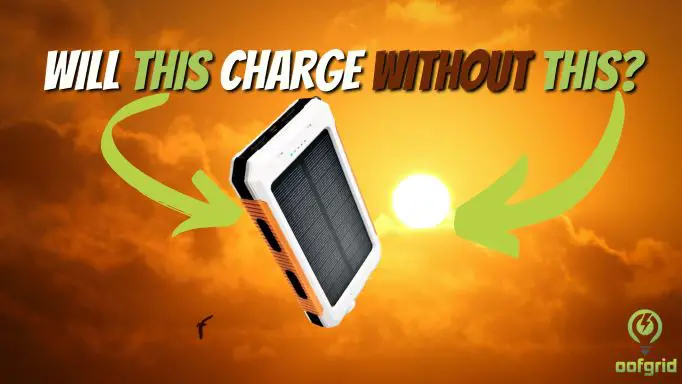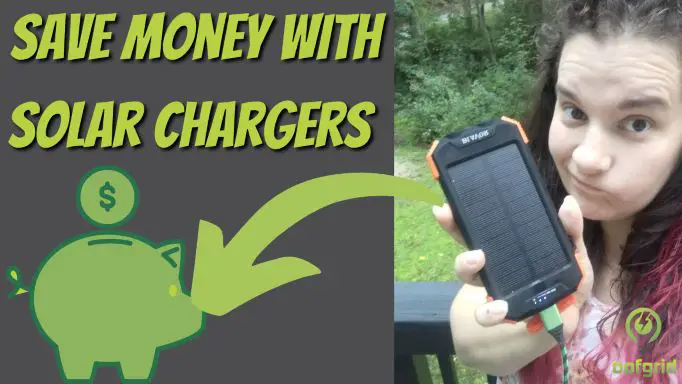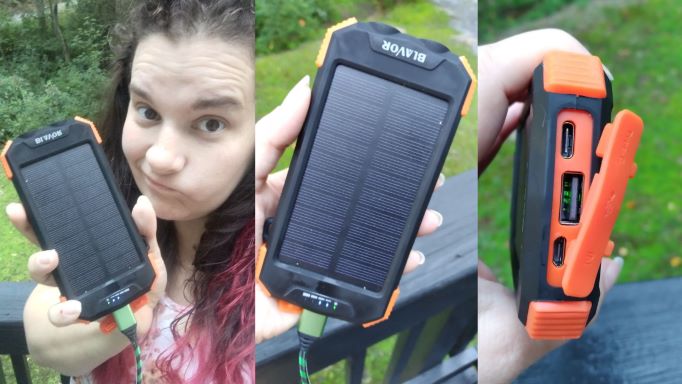Portable generators are some of the best tools one can have in their arsenal. They’re great for emergency situations like the power going out, but they are also great for camping trips and outdoor activities.
However, before you start looking across the internet for a generator, it might be useful to know how much fuel you’re going to be using.
How much fuel does a generator use? A generator would use three-quarters of gas an hour, and while this is a good average estimate, we all know that all generators are different. Don’t be surprised if there’s one generator that uses up way more fuel than the other and vice versa.
If you’re living in an area with a shaky power supply, if you simply need a power supply for your next camping trip, or if you need a source of power for your power tools when you’re working outdoors, a portable generator may be an appliance that will suit your needs very well.
The right generator will provide you with constant power which is perfect for outdoor activities and those DIY jobs you’ve been meaning to get done around the backyard.
But before you go out and buy one, it’s important to know how much fuel the generator uses so that you have a clear idea of what it will cost to run the generator.
In this article, we take a look at how much power different generators use up per hour, read on to find out more.
This chart below shows approximate fuel consumption for a diesel or petrol generator which is calculated on the size of the generator and the load it’s operating on. Ie: 1/4, 1/2 or full load, etc.
This chart is should be used as an estimate of how much fuel a generator can use during operation. It is only a rough guide due to various factors that can increase or decrease the amount of fuel used ie: Type of equipment being used.
| Generator Size (kW) | 1/4 Load (GPH) | 1/2 Load (GPH) | 3/4 Load (GPH) | Full Load (GPH) |
|---|---|---|---|---|
| 400 | 8.9 | 14.9 | 21.4 | 28.6 |
| 500 | 11 | 18.5 | 26.4 | 35.7 |
| 600 | 13.2 | 22 | 31.5 | 42.8 |
| 750 | 16.3 | 27.4 | 39.3 | 53.4 |
| 1000 | 21.6 | 36.4 | 52.1 | 71.1 |
| 1250 | 26.9 | 45.2 | 65 | 88.8 |
| 1500 | 32.2 | 54.2 | 77.8 | 106.5 |
| 1750 | 37.5 | 63.2 | 90.7 | 124.3 |
| 2000 | 42.8 | 72.2 | 103.5 | 142 |
| 3000 | 53.6 | 97.2 | 112.8 | 163.4 |

Contents
Types Of Generators
If you’ve been spending any time on the internet looking for generators, you’d know that there are a lot of different types of generators. But we’re only going to focus on the main types in this article.
These are 1,000-watt generators, 2,000-watt generators, and 3,000-watt generators. Aside from the wattage of your generator, the type of fuel it uses will also play a factor in its gas consumption.
For example, diesel generators are probably the most cost-effective, as diesel burns slower than other fuels, but diesel isn’t the best for the environment.
Natural-gas generators are generally cleaner and better for the environment than diesel ones, and they also use less fuel than other generators, but they are still not entirely environmentally friendly, but more on that later.
For now, we focus on how much fuel is needed to keep a 1,000, 2,000, and 3,000-watt generator running.
Another option is Large Portable Power Stations that run fuel-free, clean and silent. Click here to see our review
How Much Fuel Does A 1,000-Watt Generator Use?
A 1,000-watt generator is probably the smallest one you can get, so it would be safe to assume that it uses less fuel than other generators. This is mostly true, as these generators can last up to 2 hours going at full-power with a full tank (which is usually around 0.6 gallons).
That means you won’t be spending too much money powering it up. However, since these generators do have as much power as others, it won’t be able to power a lot of appliances.
A 1,000-watt generator can easily power TV’s, computers, speakers, laptops, and 3-15W LED lights. This makes it great for outdoor activities, but it also means that you won’t be able to power a lot of other appliances.
BEST 1000 WATT GENERATOR SUGGESTION
- Lightweight and compact: weighing only 29 lbs., the EU1000i is incredibly lightweight and portable, it's easy...
- So quiet, your neighbors will thank you, the EU1000i operates at 53 to 59 dBA, which is less noise than a...
- Honda's inverter technology means stable, clean power in a smaller, lighter package, the precision of Honda's...
- Protected by oil alert: this protects the generator by shutting the engine off when low oil pressure is...
- Thanks to our exclusive eco-throttle system, the EU1000i offers fuel efficiency, it runs up to 8.3 hours on a...
Last update on 2025-07-01 / Affiliate links / Images from Amazon Product Advertising API
How Much Fuel Does A 2,000-Watt Generator Use?
These generators are the most common portable generators that you can find in a lot of households. These are the ideal generators for households as they don’t use up too much fuel and they are strong enough to power a lot of appliances.
But since these machines are a bit more powerful than 1,000-watt generators, they also use more fuel. On average, a standard 2,000-watt generator will use about 0.75 (or around three-fourths) of a gallon of gas in an hour if running at full power.
But at lower-power modes, these generators can go on for hours on a couple of gallons. A fair amount more than a 1,000-watt generator, but it’s a fair trade-off for having more power.
Best 2000 WATT GENERATOR
No products found.
How Much Fuel Does A 3,000-Watt Generator Use?
These generators are definitely much stronger than the previous two, but that does come with a price. For starters, these generators are significantly larger, so it may be slightly harder to move around (though it can still be done easily).
Aside from that, these generators use a lot more fuel and can be loud. But if you need to power more appliances and electronics, a 3,000-watt generator may be your best bet.
When it comes to fuel consumption, these generators burn about 0.80 gallons of fuel an hour if running at lower power. So that means you can keep the generator running for 6-8 hours on a couple of gallons of gas, which is really easy to do since these larger generators have tanks that can accommodate more fuel.
However, you can expect to burn up more than a gallon of gas an hour if you have this running at full force.
BEST 3000 WATT GENERATOR
- Extremely quiet operation minimizes noise; EPA III and CARB Compliant
- 212cc 4-stroke OHV engine produces 3800 surge watts and 3400 rated watts with a half-load runtime of up to 8.5...
- Fuel shutoff maximizes the generator’s lifespan by using up the remaining fuel in the carburetor before...
- Produces clean power to prevent damage to sensitive electronics such as smart phones, tablets and laptops
- Includes two three-prong 120V receptacles, one AC 120V NEMA TT-30R RV receptacle, one 12V DC receptacle, one...
Last update on 2025-07-16 / Affiliate links / Images from Amazon Product Advertising API
Which Fuel-Sources Are The Most Efficient?
While the power of the generator may be very important in determining the consumption of one, the type of fuel being used can be just as important at determining how much fuel the machine is going to use up.
In this segment, we take a look at some of the most common fuel sources for portable generators and their advantages.
Propane
This one of the most common fuel sources for generators, and it’s easy to see why. Propane is very accessible and easy to get your hands on, so this is ideal for those who live in remote areas as you won’t have a hard time finding fuel for the generator.
Propane is also fairly efficient so you won’t have to buy a lot of it at a time to power your generator.
Read our guide on the quietest portable generators here ↗️
Diesel
When it comes to slow-burning fuels, diesel probably wins it. Since the gas burns slower than others, a gallon of diesel will last you longer than other sources, which can really help you cut costs and consumption.
However, diesel isn’t environmentally friendly. These engines can release harmful emissions that aren’t safe. Because of this, there are some diesel generators out there that won’t pass EPA standards and could cause you some trouble.
Read our complete guide for budget diesel generators here ↗️
Natural Gas
This fuel source is slightly cleaner than diesel and burns a bit faster. While you may be using more fuel per hour than if you were using diesel, natural gas is more eco-friendly than diesel.
That being said, it still releases harmful fumes that aren’t ideal for the environment.
Gasoline
Gasoline generators are fairly efficient, and they are also the least expensive types of generators out there. This makes it a great choice for those looking to save a bit when buying a generator, as gasoline is also a fairly accessible and efficient source of power.
However, in emergency situations, getting your hands on gasoline may be pretty difficult.

Click here to learn more
CONCLUSION: How much fuel does a generator use?
All generators are different, that’s why asking how much fuel does a portable generator use might fetch you inconsistent answers. Many people with RV’s and Campers need to know exactly how long their generator will run on fuel so they can purchase the correct amount before heading off.
This is due to the fact that a lot of factors go into how much fuel a generator consumes. From the type of fuel being used to the wattage, all the way down to the exact model of the generator.
But while it may be hard to come up with an exact and definite number, it is possible to average it out.
So now that you have a general idea of how much fuel is needed to run different generators, the only thing left to do is go out and choose which type will fit your needs the best!
- 【Powerful Engine And Safe For Sensitive Electronics 】The GENMAX 2000 Starting Watts Inverter Generator is...
- 【Ultralight And Small Size】At only 34pounds, GM2000i is one of the lightest 2000w inverter in this...
- 【Extremely Quiet,Fuel Efficient】 As Low as 60 dBA Noise Output, Run for 8 hours at 50% load on a 1 gallon...
- 【Power Panel】Includes low oil alarm, overload alarm,Co warning light and output indicator features “Eco...
- 【CO Detect Shutdown】 Includes CO Detect shutdown sensor for Prevention of Carbon Monoxide Poisoning.
- [Expand Power] - Connect B2 extra battery to reach huge 5120Wh capacity (vs. competitors' 3kWh max).
- [Powerful Output] - 2000W AC (4500W peak) runs high-watt appliances like refrigerators and CPAP machines.
- [Dual Charging Speeds] - 1400W fast charge (0-80% in 50mins) or 700W slow charge for battery longevity.
- [13 Versatile Outputs] - 4*120V/2000W AC, 2*USB-C 100W, 4*USB-A 18W, 2*DC5521 and 1*car lighter.
- [Multi-Source Charging] - Solar, AC, car, or hybrid solar+AC charging up to 2200W input.
- Power: 2500 starting watt and 1900 running watt clean power (less than 3% THD), 5.5 hours run time at 50% load
- Lightweight: At only 39.7 pounds with built-in handle, easy to carry for camping trips and tailgate parties
- Quiet Operation: 52 dBA from 23 feet at 25% load, 59 dBA from 23 feet at full load
- Panel: Two three-prong 120V 15A receptacle, one 12V DC Outlet, two 5V USB ports, parallel ports
- Features: Eco Mode, Low Oil Shutdown, Overload Reset, Carbon Monoxide Auto Shutdown
- 【Compact & Reliable Generator for All Your Needs】Engineered for reliable performance, this compact...
- 【Ultra-Light & Portable Design】Weighing just 42 pounds, this generator is ultra-light and features an...
- 【Powerful Yet Safe for Sensitive Electronics 】With 2000 Starting Watts and 1800 Running Watts, confidently...
- 【Fuel-Efficient Performance with Parallel Capability】Achieve maximum fuel efficiency with our advanced...
- 【Smart Power Panel for Easy Monitoring】Stay informed with our intuitive power panel, featuring low oil...
- Ultralight and compact body weighs in at a mere 39 pounds for easy transport and storage
- Extremely quiet operation comparable to the sound of a normal conversation according to the US Department of...
- Produces 2350 surge watts and 1900 rated watts of clean power for safe charging of sensitive electronics...
- Fuel shutoff maximizes the generator’s lifespan by using up the remaining fuel in the carburetor before...
- Includes two three-prong 120V receptacles, one 12V DC receptacle, two 5V USB ports, and a two-year warranty
Last update on 2025-06-26 / Affiliate links / Images from Amazon Product Advertising API













